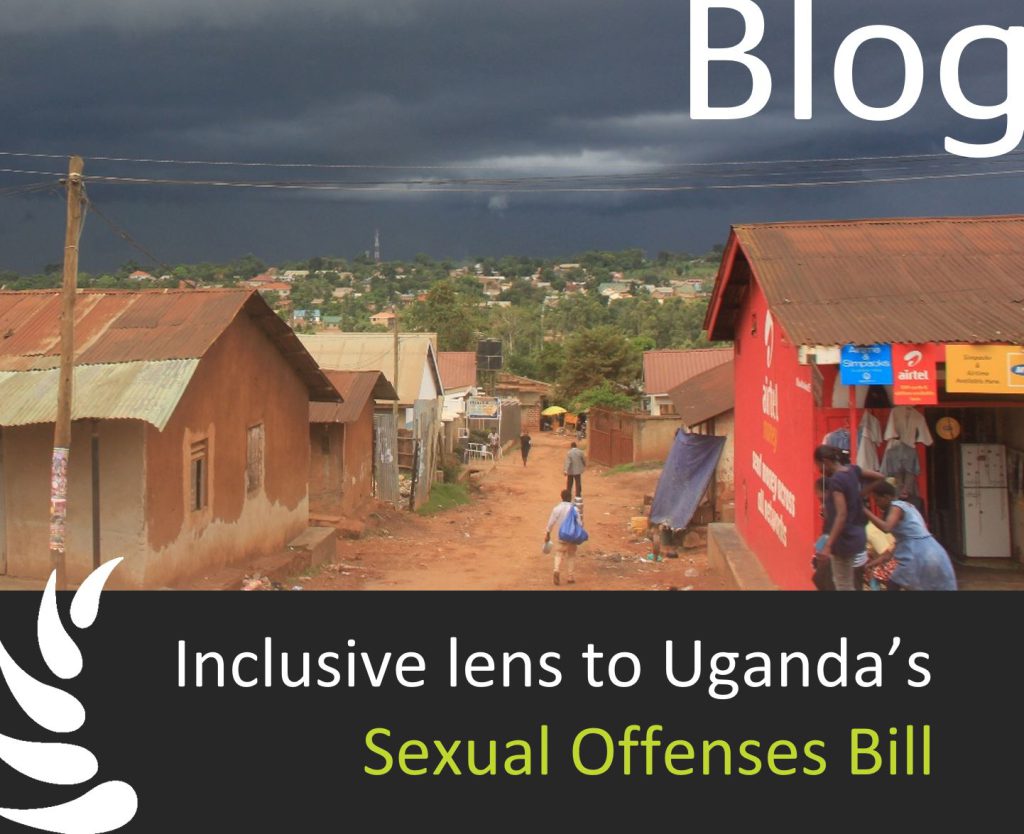ADAPTING AN INCLUSIVE LENS TO UGANDA’S SEXUAL OFFENCE BILL
By Harriet Kamashanyu
“Uganda’s Sexual Offenses Bill, 2019 both criminalizes consensual sex acts and would allow some non-consensual acts to go unpunished.” – Human Rights Watch
The bill has been pending for more than a decade, approved by parliament on May 3, 2021 leaves a lot to be questioned about! We applaud the phenomenal women in the parliament who spearheaded the efforts making this bill a reality given the various controversies and resistance that was faced way back from 2015 it was tabled to its enactment in 2021 waiting for the approval of the president to be used as a checkmate on the injustices committed against women.
While offering provisions designed to prevent and punish sexual offences, the bill has milestones that we can celebrate from the feminist point of view in far as addressing the injustices committed on girls and women at large in the country like sexual violence, rape, defilement, sexual exploitation, child prostitution, child sex tourism, marriage involving a child that has been rampant resulting into high rates of teenage pregnancies resulting in low human capital development and increased gender inequalities. We gladly say the bill has acted as a buffer to most of the injustices committed against women especially the margins from the margins of society as they are often termed.
Despite the fact that we celebrate these milestones and victories, there is a section of marginalized women that society gives a blind eye and a deaf ear – the female sex workers who still remain as a side-lined component of women.
With the outbreak of Covid-19 and its irreversible effects on everyone, high poverty-, high unemployment levels with few social protection programs in the country forced many girls and women to join sex work so as to be able to earn a living and the fact that they do this does not make them less of women and human to enjoy the rights they are entitled to by the virtue that they are human beings.
The Bill spells out clearly on clauses like Clause 34 on False Allegations we see that most sex workers face violence at the hands of their clients which can’t be backed by evidence with the illegality and the stigma around the work making these women susceptible and exposed to violence that has been justified by the bill.
Furthermore, the bill has a Clause on Consent on the sexual act were it gives freedom a person performing a sexual act to withdraw such consent at any time to, before or during the performance of the sexual act which exposes these women to sexual exploitation and sexual violence which the bill seeks to end.
In addition to this we know that this population is termed as Most at Risk Populations (MAPs) characterized by high levels of HIV/AIDs by the virtue of the work they do however the bill calls for forceful HIV testing by sex offenders and a person involving in a sexual act when infected is liable to imprisonment of which many female sex workers fall victim. This mandatory and forced HIV testing of defendants is the highest level of human rights violation undermining the public health essential testing and treatment of HIV/AIDs prevention and treatment efforts.
This comes as a wake -up call to all the women advocates, United Nations bodies, women alliances and coalitions, health around the world to call for the revision of bill to strike a balance on all women irrespective of who they are, what they do or their sexual orientation. We are all women that deserve fair and equal treatment. The bill should be revised to ensure the intended benefits are reaped by the general public of Uganda! *More about this here ________________________________________________________________________________________________________________________
** Harriet Kamashanyu is the founder of Rhythm of Life (ROL).
ROL supports sex workers in the red light area of Kabalagala – Kampala, Uganda.
Rhythm of Life’s aim is to end the stigmatization and social exclusion of sex workers in Kampala and wants to end the cycle of mother-to-daughter prostitution. They have created a sponsorship program to support the daughters in education and professional healthcare training. Most importantly, through several economic empowerment initiatives, the women will eventually be able to independently support their daughters through school. Learn more about Harriet’s inspiring work a rhythmOfLife

